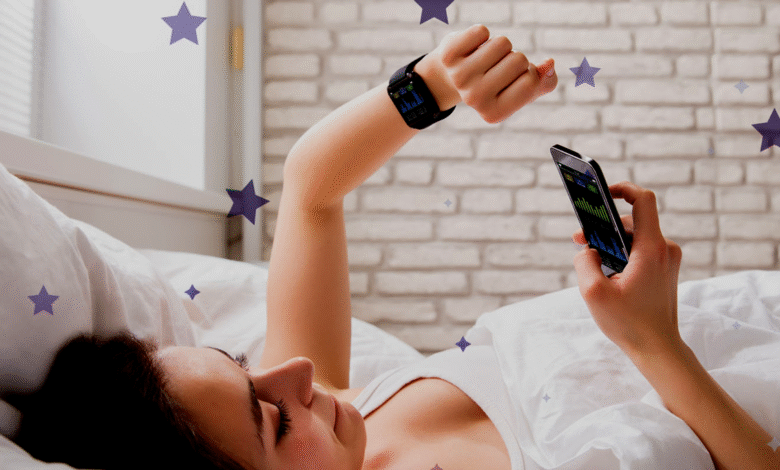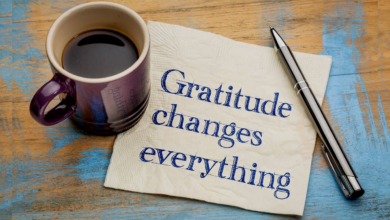How to Use a Sleep Tracker for Better Rest & Recovery
Sleep tracker guide Optimize rest & recovery with data-driven insights on sleep quality patterns and improvement strategies for better health.

Fast-paced world, quality sleep has become a luxury rather than a given, yet it remains essential for physical health, mental clarity, and emotional balance. A sleep tracker can be a game-changer, offering valuable insights into your nightly rest by monitoring sleep stages, disturbances, and overall sleep quality. Whether you struggle with frequent wakeups, insufficient deep sleep, or simply want to optimize recovery, a sleep tracker provides the data you need to make informed adjustments. By understanding your sleep patterns, you can take proactive steps toward more restorative rest and faster recovery.
The benefits of using a sleep tracker extend beyond just counting hours it helps uncover hidden disruptions, such as irregular heart rate fluctuations, environmental noise, or poor bedtime habits. Athletes, busy professionals, and anyone seeking better wellness can leverage this technology to fine-tune their sleep hygiene. In this guide, we’ll explore how to choose the right tracker, interpret its data effectively, and implement changes that lead to deeper, more rejuvenating sleep. With the right approach, a sleep tracker can transform restless nights into a foundation for peak performance and well-being.
How to Use a Sleep Tracker for Better Rest & Recovery
Types of Sleep Trackers and Their Technology
Sleep trackers use different technologies depending on their design. Wearable devices like smartwatches and fitness bands rely on accelerometers to detect movement and optical heart rate sensors to monitor pulse variations, which help determine sleep stages (light, deep, and REM sleep). Some advanced models also include SpO2 sensors to measure blood oxygen levels, which can indicate sleep apnea or breathing disruptions. Non-wearable options, such as bedside sensors (placed under the mattress or on a nightstand) and smartphone apps, use a mix of motion detection, sound analysis, and environmental sensors to assess sleep quality.
How Sleep Tracking Data Improves Rest
The real power of a sleep tracker lies in its ability to identify patterns and trends in your sleep behavior. By analyzing data over time, you can spot issues like frequent awakenings, irregular sleep cycles, or insufficient deep sleep all of which impact recovery. Many trackers provide personalized recommendations, such as adjusting bedtime, reducing caffeine intake, or improving sleep hygiene. Additionally, some devices integrate with smart home systems to automatically adjust lighting or thermostat settings based on your sleep cycle.
The Benefits of Using a Sleep Tracker
One of the biggest advantages of using a sleep tracker is gaining awareness of your sleep habits. Many people underestimate how often they wake up at night or overestimate how long they actually sleep. A tracker provides objective data, eliminating guesswork and helping you set realistic sleep goals. Additionally, athletes and fitness enthusiasts can use sleep data to optimize recovery, as poor sleep negatively impacts muscle repair, cognitive function, and overall performance. Another key benefit is the ability to detect potential sleep disorders. While a sleep tracker isn’t a substitute for medical diagnosis, consistent irregularities.
Choosing the Right Sleep Tracker for Your Needs
Matching Sleep Tracker Types to Your Lifestyle
The ideal sleep tracker depends on your daily habits and tracking preferences. Wearables like the Apple Watch, Fitbit, or Whoop band are perfect for active users who want continuous health monitoring, including heart rate, activity levels, and sleep stages all in one device. These are particularly useful for athletes or fitness enthusiasts who need comprehensive recovery data. For those who dislike wearing devices at night, non-wearable options like under-mattress sensors (Withing Sleep Analyzer) or bedside devices provide a hassle-free way to track sleep without physical contact.
Key Features to Consider When Choosing a Sleep Tracker
When selecting a sleep tracker, prioritize accuracy, battery life, and data depth. Basic models track sleep duration and movement, while advanced devices measure SpO2 (blood oxygen), skin temperature, and even snoring patterns helpful for detecting potential sleep disorders. Also, check compatibility with other apps (like Apple Health or Google Fit) and smart home integration (such as automatic lighting adjustments). While premium features come at a higher cost, reading user reviews and testing different models.
How to Use Sleep Tracker Data Effectively
Simply wearing a sleep tracker isn’t enough you need to know how to interpret and act on the data. Start by establishing a baseline: track your sleep for at least a week without making changes to understand your natural patterns. Look for trends, such as consistent late bedtimes or frequent wakeups, and consider how external factors like caffeine, stress, or screen time may be affecting your sleep quality. Once you’ve identified areas for improvement, experiment with adjustments. For example, if your tracker shows low deep sleep, try incorporating relaxation techniques like meditation or a warm bath before bed.
Common Mistakes to Avoid When Using a Sleep Tracker
While sleep trackers are helpful, relying on them too heavily can sometimes backfire. One common mistake is becoming overly fixated on sleep scores, leading to unnecessary stress. Remember that no device is 100% accurate, and occasional poor sleep is normal. Another pitfall is ignoring subjective feelings if you feel well-rested despite a low sleep score, trust your body’s signals rather than the data alone. Additionally, avoid making drastic changes based on short-term data.
Advanced Tips for Optimizing Sleep and Recovery
For those looking to take their sleep tracking to the next level, integrating additional recovery strategies can amplify results. Pairing your sleep tracker with a journal to log daily habits (exercise, diet, stress levels) can help identify correlations between lifestyle and sleep quality. Athletes may benefit from combining sleep data with heart rate variability (HRV) measurements to gauge recovery status more precisely.
Read More: How to Boost Your Child’s Immunity with a Balanced Diet
Conclusion
A sleep tracker is more than just a gadget it’s a powerful tool that bridges the gap between restless nights and truly restorative sleep. By analyzing your sleep patterns, identifying disruptions, and highlighting areas for improvement, a sleep tracker empowers you to take control of your rest and recovery. Whether you’re an athlete optimizing performance, a professional combating burnout, or simply someone seeking deeper sleep, the data-driven insights from these devices can lead to meaningful, lasting changes in your sleep hygiene.
Ultimately, the key to success lies in consistency and mindful adjustments. While a tracker provides valuable feedback, it’s your commitment to applying its insights through better routines, sleep-friendly environments, and stress management that will determine your results. By combining technology with healthy habits, you can transform your sleep quality, wake up refreshed, and enjoy the full benefits of a well-rested body and mind. The journey to better sleep starts with understanding, and with a tracker as your guide, you’re already one step closer to optimal rest and recovery.
FAQs
How accurate are sleep trackers?
Most sleep trackers provide a good estimate of sleep patterns but aren’t as precise as medical-grade devices. They’re best used for identifying trends rather than exact measurements.
Can a sleep tracker help with insomnia?
Yes, a tracker can help identify patterns contributing to insomnia, such as irregular bedtimes or environmental disruptions, allowing you to make targeted improvements.
Do I need to wear my sleep tracker every night?
For the most accurate insights, consistent use is recommended. However, occasional breaks won’t significantly impact long-term trend analysis.
What’s the best time to go to bed based on sleep tracker data?
A sleep tracker can suggest optimal bedtimes by analyzing your sleep cycles, but personal consistency (going to bed at the same time nightly) matters most.
Are expensive sleep trackers worth it?
High-end models offer more features (SpO2, HRV), but budget-friendly options can still provide valuable insights if you focus on core sleep metrics.











